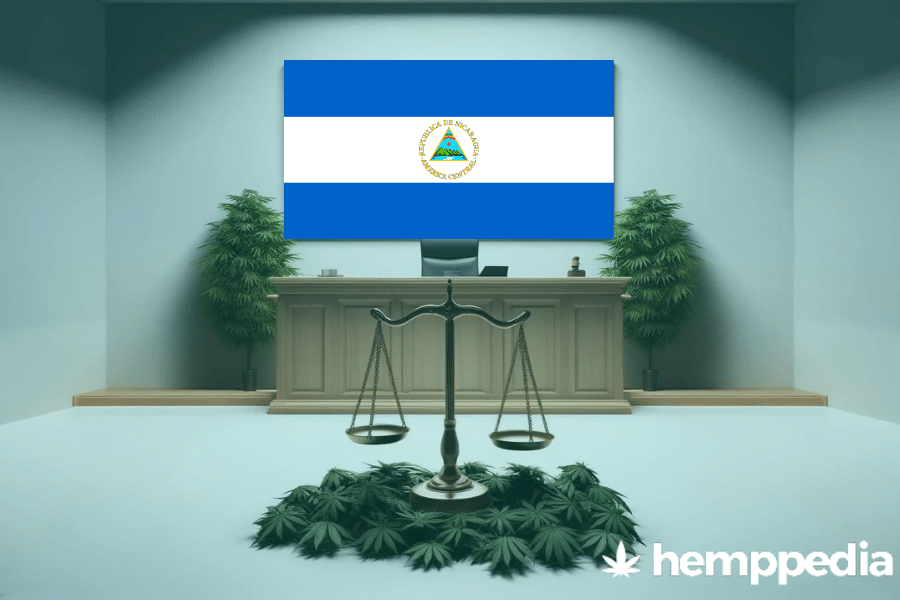TL;DR
In the Central American realm of cannabis legislation, the legality of CBD in Nicaragua is a topic worth understanding. At present, the status of CBD and other cannabis-related products in Nicaragua is illegal. The country adheres to a strict regulation against the usage and possession of these substances, regardless of the THC content.
CBD at a Glance
- Usage: Illegal
- Possession limits: N/A
- Legal distinction from THC-containing products: None
CBD (Cannabidiol) is a non-psychoactive substance derived mostly from the hemp plant, a variant of cannabis. Unlike THC (Tetrahydrocannabinol), which provides a “high,” CBD is believed to have potential therapeutic uses. Globally, its legal status varies widely, with some regions embracing a regulatory framework while others enforce restriction.
Overview of CBD Legislation
Understanding the CBD landscape requires a brief run-through of some key terms and associated legislation:
- CBD: Cannabidiol, a non-psychoactive compound found mainly in hemp plants.
- Hemp vs. Marijuana: Both are variants of the Cannabis sativa plant, but hemp typically contains higher CBD and lower THC content (less than 0.3%).
- THC Content: Tetrahydrocannabinol, the psychoactive compound in cannabis that gives the “high” sensation.
- Full-spectrum vs. Isolate: Full-spectrum CBD contains all the cannabinoids present in the plant, while isolate is pure CBD.
In Nicaragua, the legality of CBD aligns with the general prohibition against cannabis-related products. This stance is regulated by the Ministry of Health and enforced by national police and other law enforcement bodies. It’s worth noting that there are no specific exceptions or conditions related to THC content or the type of CBD products.
Historical Context
Like many Latin American countries, Nicaragua historically has a zero-tolerance policy towards cannabis. The shift in cannabis legislation seen in other parts of the world has not made significant impacts in Nicaragua yet.
Possession, Use, Cultivation and Sales
In Nicaragua, the possession, use, cultivation, and sales of CBD are all considered illegal activities. Importing and exporting of CBD products follow the same prohibition. Details in regards to the cultivation of hemp for CBD production or regulations for the manufacturing of CBD products are non-existent since all related activities are strictly prohibited under current legislation.
Enforcement and Penalties
Violating the existing cannabis legislations, including the use or possess CBD, leads to stringent penalties in Nicaragua. The consequence may range from criminal charges, mandatory rehabilitation, fines, or imprisonment. No differentiation is made regarding the use of CBD for medical purposes or otherwise.
Comparative Analysis
Compared to Nicaragua, fellow Central American countries like Costa Rica and Mexico have begun the process of regulating CBD and medical cannabis. This signifies that while some countries are slowly embracing the possible therapeutic benefits of CBD, Nicaragua remains firm in its prohibition policy.
Conclusion
In conclusion, the legal status of CBD in Nicaragua remains clear: it is prohibited. The country’s strict stance on Cannabis-related products continues to define its legislative environment, with no discernable signs of imminent changes towards a more nuanced regulatory framework. Nonetheless, the situation is fluid. As global perception towards Cannabis and CBD evolves, so could the outlook in Nicaragua.





